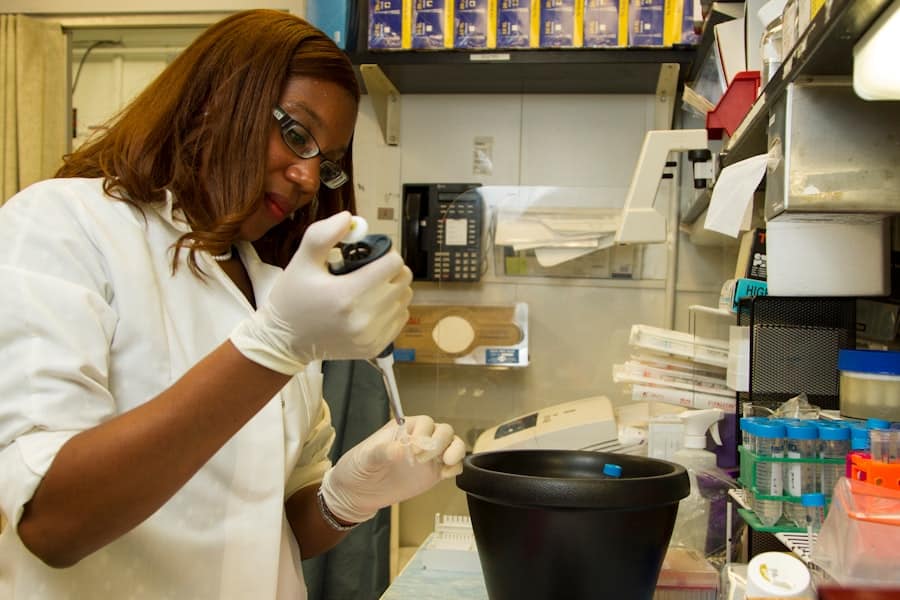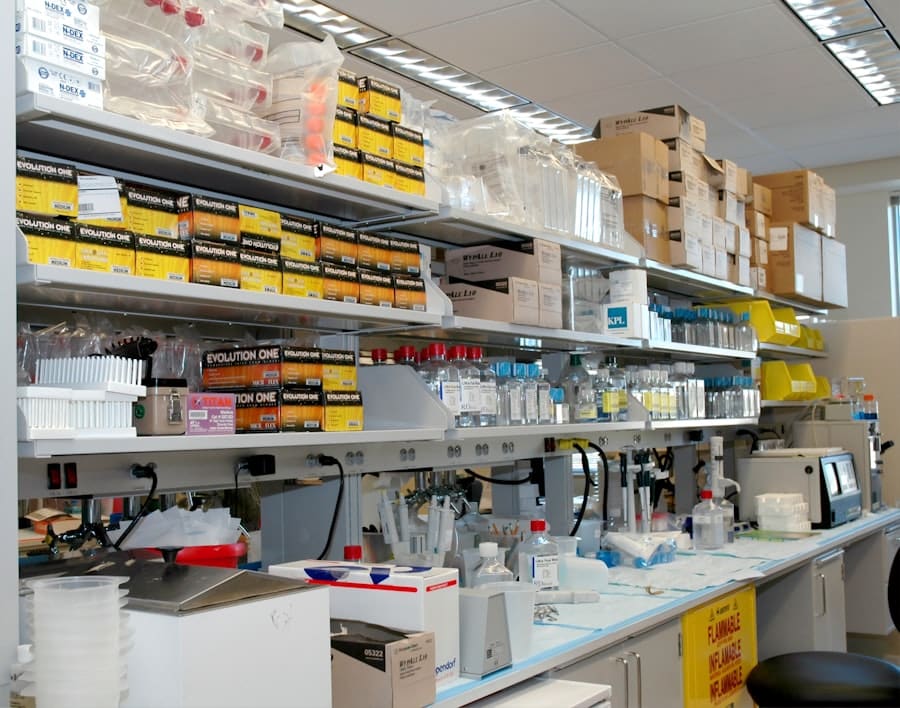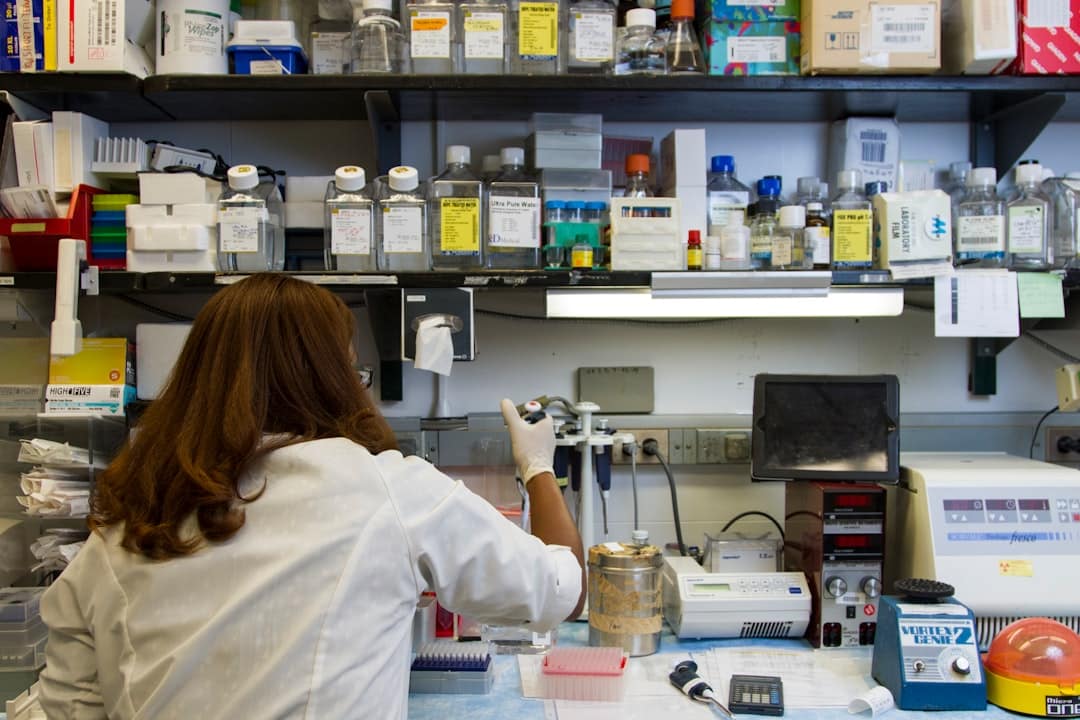The intersection of artificial intelligence (AI) and scientific inquiry has emerged as a transformative frontier in research methodologies. Traditionally, the formulation of scientific hypotheses has relied heavily on human intuition, creativity, and the synthesis of existing knowledge. However, the advent of AI technologies has introduced new paradigms for hypothesis generation, enabling researchers to leverage vast datasets and complex algorithms to uncover patterns and insights that may elude human cognition.
This shift not only accelerates the pace of discovery but also enhances the precision and scope of scientific exploration. AI’s role in hypothesis generation is particularly significant in fields characterized by large volumes of data, such as genomics, climate science, and materials science. By employing machine learning algorithms and natural language processing, researchers can analyze existing literature, experimental results, and even social media trends to identify gaps in knowledge and propose novel hypotheses.
This capability not only democratizes access to scientific inquiry but also fosters interdisciplinary collaboration, as AI tools can synthesize information across diverse domains, leading to innovative approaches to longstanding scientific questions.
Key Takeaways
- AI is revolutionizing the scientific research process by aiding in hypothesis generation and discovery.
- Current applications of AI in scientific research include drug discovery, protein folding, and data analysis.
- Advancements in AI technology, such as deep learning and natural language processing, are improving hypothesis generation capabilities.
- Challenges and limitations of AI in hypothesis creation include bias in data and the inability to account for serendipity.
- Ethical considerations in AI-generated hypotheses include transparency, accountability, and potential misuse of AI-generated hypotheses.
- Collaborative approaches, such as human-AI partnerships, can enhance the quality and creativity of AI-generated hypotheses.
- AI-generated hypotheses have the potential to accelerate scientific discovery and lead to new breakthroughs in various fields.
- Future directions and opportunities for AI in scientific hypotheses include personalized medicine, environmental sustainability, and interdisciplinary collaboration.
Current Applications of AI in Scientific Research
AI is currently being utilized across a multitude of scientific disciplines, demonstrating its versatility and effectiveness in hypothesis generation. In the realm of biomedical research, for instance, AI algorithms are employed to analyze genomic data, enabling researchers to identify potential genetic markers associated with diseases. By processing vast datasets from genomic sequencing, AI can suggest hypotheses regarding gene-disease relationships that may not have been previously considered.
This application has profound implications for personalized medicine, where tailored treatments can be developed based on individual genetic profiles. In environmental science, AI is revolutionizing the way researchers approach climate modeling and ecological studies. Machine learning techniques are used to analyze historical climate data and predict future trends, allowing scientists to formulate hypotheses about the impacts of climate change on biodiversity and ecosystem dynamics.
For example, AI-driven models can simulate various climate scenarios and their potential effects on species distribution, leading to hypotheses that inform conservation strategies. These applications illustrate how AI not only enhances the efficiency of research but also expands the horizons of scientific inquiry by enabling the exploration of complex systems.
Advancements in AI Technology for Hypothesis Generation

The rapid advancements in AI technology have significantly enhanced its capabilities for hypothesis generation. One notable development is the emergence of deep learning techniques, which utilize neural networks to process and analyze data at unprecedented scales. These models can learn intricate patterns from large datasets without explicit programming, allowing them to generate hypotheses based on correlations that may be too subtle for human researchers to detect.
For instance, in drug discovery, deep learning algorithms can analyze chemical compounds and biological data to propose new drug candidates that target specific diseases. Natural language processing (NLP) has also seen remarkable progress, enabling AI systems to comprehend and generate human language with increasing sophistication. This capability allows AI to sift through vast amounts of scientific literature, extracting relevant information and identifying gaps in knowledge.
By analyzing trends in published research, NLP algorithms can suggest hypotheses that align with emerging scientific themes or address unanswered questions.
Challenges and Limitations of AI in Hypothesis Creation
Despite the promising potential of AI in hypothesis generation, several challenges and limitations persist that warrant careful consideration. One significant challenge is the quality and representativeness of the data used to train AI models. If the underlying data is biased or incomplete, the hypotheses generated may reflect those shortcomings, leading to erroneous conclusions or missed opportunities for discovery.
For example, if an AI system is trained predominantly on studies from a specific demographic or geographic region, it may overlook critical variables that influence broader scientific questions. Another limitation lies in the interpretability of AI-generated hypotheses. While machine learning models can identify patterns and correlations within data, they often operate as “black boxes,” making it difficult for researchers to understand the rationale behind specific hypotheses.
This lack of transparency can hinder the acceptance of AI-generated ideas within the scientific community, as researchers may be reluctant to pursue hypotheses that lack a clear theoretical foundation or empirical justification. Addressing these challenges requires ongoing efforts to improve data quality, enhance model interpretability, and foster collaboration between AI experts and domain scientists.
Ethical Considerations in AI-Generated Hypotheses
The integration of AI into scientific hypothesis generation raises important ethical considerations that must be addressed to ensure responsible research practices. One primary concern is the potential for bias in AI algorithms, which can perpetuate existing inequalities or lead to harmful outcomes if not carefully managed. For instance, if an AI system generates hypotheses based on biased training data, it may inadvertently reinforce stereotypes or overlook marginalized populations in biomedical research.
Researchers must remain vigilant in evaluating the ethical implications of their work and strive for inclusivity in both data collection and hypothesis formulation. Additionally, the use of AI in hypothesis generation raises questions about authorship and intellectual property. As AI systems become more capable of generating original ideas, determining who holds ownership over these hypotheses becomes increasingly complex.
This issue is particularly pertinent in collaborative research environments where human researchers work alongside AI tools. Establishing clear guidelines for authorship and attribution will be essential to navigate these challenges while fostering innovation and collaboration between humans and machines.
Collaborative Approaches: Human-AI Partnerships in Hypothesis Generation

The most effective utilization of AI in hypothesis generation often arises from collaborative approaches that leverage the strengths of both human researchers and AI systems. Rather than viewing AI as a replacement for human creativity and intuition, many scientists are embracing a partnership model where AI serves as a tool that enhances human capabilities. In this collaborative framework, researchers can use AI-generated insights as a starting point for further exploration, refining hypotheses through their domain expertise and critical thinking.
For example, in astrophysics, researchers have begun using AI algorithms to analyze astronomical data from telescopes, identifying potential exoplanets or unusual celestial phenomena. Human scientists then take these AI-generated leads and apply their knowledge of astrophysics to develop testable hypotheses about the nature of these discoveries. This synergy between human intuition and machine learning not only accelerates the research process but also enriches the scientific discourse by incorporating diverse perspectives and expertise.
Impact of AI-Generated Hypotheses on Scientific Discovery
The impact of AI-generated hypotheses on scientific discovery is profound and multifaceted. By enabling researchers to explore a broader range of possibilities and identify novel connections within complex datasets, AI has the potential to catalyze breakthroughs across various fields. For instance, in materials science, AI-driven approaches have led to the discovery of new materials with unique properties by predicting how different combinations of elements will behave at the atomic level.
Moreover, the speed at which AI can generate hypotheses allows researchers to iterate more rapidly through the scientific process. Traditional hypothesis testing often involves lengthy cycles of experimentation and analysis; however, with AI’s ability to quickly analyze results and suggest new avenues for investigation, scientists can accelerate their research timelines significantly.
This increased efficiency not only enhances productivity but also fosters a culture of innovation where researchers are encouraged to take risks and explore unconventional ideas.
Future Directions and Opportunities for AI in Scientific Hypotheses
Looking ahead, the future of AI in scientific hypothesis generation holds immense promise as technology continues to evolve. One area ripe for exploration is the integration of multi-modal data sources into AI systems. By combining data from diverse fields—such as genomics, environmental science, and social sciences—AI could generate more holistic hypotheses that consider complex interactions across different domains.
This interdisciplinary approach could lead to groundbreaking discoveries that address pressing global challenges such as climate change or public health crises. Furthermore, advancements in explainable AI (XAI) will play a crucial role in enhancing the interpretability of machine-generated hypotheses. As researchers develop models that provide clearer insights into their decision-making processes, acceptance within the scientific community is likely to grow.
This transparency will facilitate more robust collaborations between human experts and AI systems, ultimately leading to richer scientific discourse and more impactful discoveries. In conclusion, as artificial intelligence continues to reshape the landscape of scientific inquiry, its role in hypothesis generation will undoubtedly expand. By harnessing the power of advanced algorithms while addressing ethical considerations and fostering collaborative partnerships between humans and machines, researchers stand poised to unlock new frontiers in knowledge and understanding across diverse fields of study.
The journey ahead promises not only enhanced efficiency but also a deeper appreciation for the complexities of our world as we navigate the uncharted territories of scientific discovery together with our intelligent counterparts.
In a related article from Wired.com, the focus is on how emerging technologies are shaping the future of scientific research. The article delves into the impact of AI on creating new scientific hypotheses and the potential for advancements in various fields. It explores the ways in which technology is revolutionizing the scientific process and opening up new possibilities for discovery. The insights provided in this article complement the discussion on the future of AI in generating scientific hypotheses, highlighting the interconnectedness of technology and scientific innovation.
FAQs
What is AI?
AI, or artificial intelligence, refers to the simulation of human intelligence in machines that are programmed to think and act like humans. These machines are designed to perform tasks that typically require human intelligence, such as visual perception, speech recognition, decision-making, and language translation.
How is AI used in creating new scientific hypotheses?
AI is used in creating new scientific hypotheses by analyzing large datasets, identifying patterns, and making predictions based on the data. AI algorithms can process and analyze vast amounts of information much faster than humans, allowing researchers to uncover new connections and potential hypotheses that may have been overlooked using traditional methods.
What are the benefits of using AI in creating new scientific hypotheses?
Using AI in creating new scientific hypotheses can lead to the discovery of novel connections and patterns in data that may not have been apparent through traditional methods. AI can also help researchers generate and test hypotheses more efficiently, leading to faster scientific advancements and breakthroughs.
What are the limitations of using AI in creating new scientific hypotheses?
One limitation of using AI in creating new scientific hypotheses is the potential for bias in the algorithms and data used. Additionally, AI may not always be able to account for the complex and nuanced nature of scientific research, and human oversight is still necessary to ensure the validity and relevance of the hypotheses generated.
How is AI expected to impact the future of scientific research?
AI is expected to have a significant impact on the future of scientific research by accelerating the pace of discovery, enabling researchers to explore new areas of inquiry, and facilitating the development of innovative hypotheses and theories. AI has the potential to revolutionize the scientific process and lead to groundbreaking advancements in various fields.

